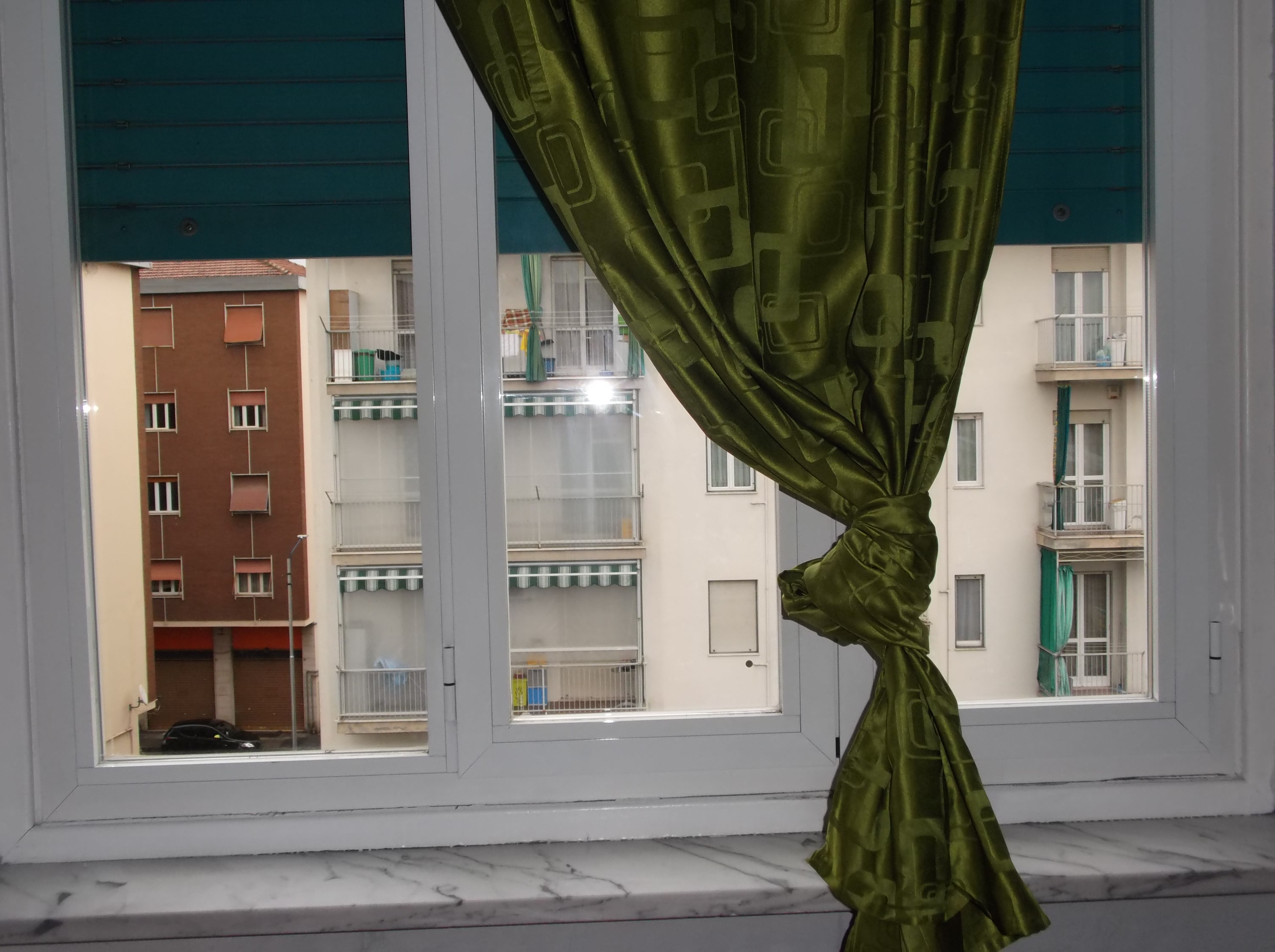Translated and with an introduction by Shahroza Nahrin
Cover image: Photo of Fig-Tree-Roots-Hidden-Valley-Sunshine-Coast- Queensland, Australia, by Neil Davidson.
Translator’s Preface
We usually turn to Johann Wolfgang von Goethe and Matthew Arnold when tracing the origins of comparative literature. How often do we look at François-Marie Arouet or Voltaire to ferret out even earlier examples of comparative literary practices? Razu Alauddin digs out snippets of Voltairean comparative analyses from letters, notes and essays. But situating Voltaire in this context warrants some questions. Who did he compare, as Gayatri Chakravorty Spivak would like us to think? And how did he compare? Voltaire mostly worked with European literary figures in his literary analyses. When he meditated on the Orient, despite his best intentions, if we read him against the grain, that is, Voltaire made sweeping generalizations. One can say, in tune with Edward Said, that Voltaire invented India. The final quote in this essay is a case in point. When his contemporary missionaries painted India as a place of antiquity, despotism and superstitions, Voltaire romanticized asceticism. Jyoti Mohan elaborates on this in his essay. A person who never set foot in India, Voltaire at times relied on moot sources. Author and doctoral researcher, Arghya Bose, argues that Voltaire substantiated many arguments from ‘Ezourevedam’, a forged Sanskrit text intended to ridicule Hindu practices. That being so, Alauddin’s essay deserves attention for highlighting East-West cultural exchanges at a time when cultural transmission is thought to be a one-way journey from Western metropoles to global peripheries. Pascale Casanova’s The World Republic of Letters is a befitting example. Alauddin’s piece in a way counters that one-way transmission. – Shahroza Nahrin
Pioneer’s Portrait: How Voltaire Contributed to Comparative Literature
For thousands of years, various nations with their literature and culture lived geographically close to or distant from each other, but they made contact in myriad ways. If that was not true, then the literature of one language would not disseminate across countries through the medium of other languages. Across his territorial expanse, Fernando III, also known as el Santo, the saint of Spain, maintained such a language as his official language[i] that was at his time— in Antonio Alatorre’s words— a dialect from the margin[ii]. Yet in that very language, his son Alfonso el Sabio, the wise king, commissioned the translation of a book titled Calila e Dimna. The book was in Arabic, but it originated in an Indian tongue. In other words, it entered the Arab world from India, and from Arab reached Europe in a language, then a dialect, that we now know as Spanish. The purpose of mentioning this incident is to note that due to continuous human curiosity and communication desire, literature of a certain language and country did not anchor to a single space; it travelled to different locations in different languages spurred on by numerous causes. This travel allowed literature of another language to sit beside the literature of one’s own. Then they looked at each other; they even consciously or unconsciously compared one another for sure. Comparison is a natural human tendency. Although it is innate in humans, in the case of literature, we had to wait until the nineteenth century for the official outset of what is theoretically known today as comparative literature. And for it to gain its final recognition and standing in the academic arena, we waited for at least another hundred years.
Despite our inherent propensity for comparison, the history of its practice and awareness is not that long. A conscious mind that could awaken such a sensibility required erudition, broadmindedness, a sense of connectivity, and a desire for universality. The nature of the eighteenth-century colonial era was contradictory; although it offered Europe an opportunity to connect with other nations, it taught them contempt for the colonized. Nonetheless, it was also true that there were learned people of their own stock who were fascinated by the wealth of Oriental knowledge and were aroused by a sense of comparison while correlating their own intellectual assets with that of the Orient. In that case, we chiefly remember German thinker Johann Wolfgang von Goethe who coined a term called Weltliteratur or world literature from a sincere passion for connecting with the world; and his idea of world literature is again tied to, or synonymous with the concept called comparative literature. It is well-known that the term ‘comparative literature’ was conceived at the hands of English critic Matthew Arnold in 1848. And before him, in 1830, Charles Augustin Sainte-Beuve first introduced ‘la littérature comparée’ in French. Arnold hardly ever intimated the source from which he derived the expression, but even so one can contend that he came across it from reading French literature. Any student of literature in general is aware of his interest and involvement in the literature and culture of France. In a lecture titled “On the Modern Element in Literature” in 1857, Arnold explained why comparative literature was necessary.
“Everywhere there is connexion, everywhere there is illustration: no single event, no single literature, is adequately comprehended except in its relation to other events, to other literatures[iii].”
We find the summary and use of Arnold’s concept in Voltaire’s many works. In Arnold, we observe a gloss on the term; even before that, we find its textual example in Voltaire’s writings. That is, granted that the words did not pair together in Voltaire, they were present with utmost appeal in his blood and pulse; they were present indeed as a unique inclination of his nature. Shortly, we will look at examples of how that came about. And in those examples, we will notice that Voltaire employed the word ‘comparison’ in numerous places: at times in the case of comparative analyses between languages; at other times in the context of literature. As such, Voltaire was consciously driven by the notion that comparison was necessary for literature and that no literature, in Arnold’s words, “was adequately comprehended except in its relation to other events, to other literature”. In a sense, Voltaire’s universalist mind mirrored this idea in a clear, refined, and organized manner in the mid-eighteenth century, that is, about a hundred years before Matthew Arnold. Another fact that bolsters Voltaire’s precedence and foresight in this regard is that other than offering a cursory commentary on the concept and its background, Arnold did not produce any work that could stand as a testament to his treatise on comparative literature. Voltaire, however, was concomitantly the progenitor of such concept and composition. Most likely, Arnold’s conception of the term is, what I believe, a result of reading Voltaire. Arnold knew French, and he also wrote a book titled The Popular Education of France in 1861; that means, not only did he know the language but also wrote about issues concerning that place.
“Undoubtedly Matthew Arnold was influenced by his contact with France. His work and his correspondence bear witness to the fact. We are indebted to him for communicating to English literature a sensitive understanding of the French spirit, as it is found in some of the more obscure movements of French literature[iv].”
Arnold admired Ernest Renan just as he revered Marquis de Sade; Renan influenced him markedly. Arnold’s close association with French litterateurs brings us to believe that he was certainly familiar with the works of Voltaire, the most exalted and celebrated among the mentioned scholars. And if that were so, then Voltaire’s influence behind the term’s coinage would rather seem apparent to us. For all things considered, Voltaire was the early proponent of universalism in Europe; through his writings, he became a global image of literary universalism. Reading Voltaire equals finding the global wealth of knowledge accumulated in an individual. As if he is the Aleph, found in a basement in Jorge Luis Borges’s short story “El Aleph”, from which everything in the world can be seen[v]. Voltaire was not just a storehouse of various national and cultural knowledge; he examined them based on the parameters of comparativism. A spontaneous aspect of his nature, comparativism made his works of all kinds vibrant and unique. But before we turn to Voltaire’s engagement with literary comparativism, I would first like to present the readers with a context of his comparative analyses among different languages. Comparing the traits of the major European languages in Essay on Epic Poetry, Voltaire contended:
“You can recognize an Italian, a Frenchman, an Englishman, a Spaniard, by his style, just as by his facial features, his pronunciation, his manners. The sweetness and softness of the Italian language has made its way into the genius of Italian authors. The pomp of words, metaphors, a majestic style, these, it seems to me, generally speaking, are the stamp of Spanish writers. Force, energy and boldness are more proper to the English; they are especially fond of allegories and comparisons. The French for their part have more clarity, exactness and elegance: they risk little; they have neither the English strength, which seems to them gigantic and monstrous, nor the Italian sweetness, which they hold degenerates into an effeminate softness[vi].”
Not only had he compared their linguistic attributes but also their works of literature. Again, he might not have invented, as Matthew Arnold did, a phrase called ‘comparative literature’, but his spirit pulsated with and was enriched by a sense of comparativism. History, culture, and religion—his three areas of interest clearly captured this pulse. Even a poorly read person requires little imagination to infer that the same applies to literature. Despite that, he is less discussed if not completely ignored in the field of comparative literary theories and practices. Ritchie Robertson, K. H. Hartley, and A. Owen Aldridge touch on Voltaire’s notion of comparative literature in their works, but their takes are brief and fragmentary; as such, their writings barely offer us the fuller picture drawn with deliberation.
None in Europe but Voltaire, even before Arnold, had bestrewn his writings with the ideas of comparative literature in such diverse ways and with such profundity. His Essay on Epic Poetry produced a Triveni Sangam, a confluence, of French, English, and Spanish.
“Antonio de Soils in his excellent History of the Conquest of Mexico, after having stated that the place where Montezuma consulted his gods was a large subterranean vault where tiny holes scarcely allowed light to enter, adds: “O permitian solamente la (luz), que bastava, para que se viesse la obscuridad.” “Or they let only enough light come in that was needed to see the darkness.” These visible shadows of Milton are not condemned in England, and the Spanish do not censure the same idea in the passage of de Solis. It is quite certain that the French would not allow such liberties. It is not enough to say that one may excuse the license of these expressions; French exactitude will admit nothing that is in need of an excuse[vii].”
Reading carefully, we can notice that Voltaire had presented before us a comparison of tri-national traits of mindset, taste, and aesthetic sensibility. In seeking to compare Solis with Milton, he illuminated the three nations’ differences in mindset in the above extract; however, eventually, racial perspectives on aesthetics became central to his comparison.
Then again, if we page through Voltaire’s other works with a probing mind, we observe that he also went beyond the unspecified domain of the broader scope of the nation and reflected on individuals against individual works through the prism of comparativism. What he proclaimed in his The Age of Louis XIV, comparing Milton with Latin poets Hesiod and Ovid, the Greek poet Homer, and the Italian poet Dante was a glaring prefiguration of literary comparativism.
“[Milton’s] long descriptions and repetitions are considered tedious; it is said that he has equalled neither Ovid nor Hesiod in his long description of the way in which the earth, the animals and mankind were created. … Milton remains at once the glory and wonder of England; he is compared to Homer, whose defects are as great, and he is preferred to Dante, whose conceptions are yet more fantastic[viii].”
His literary essays, historical books, and correspondence bear the hallmark of his comparative study on a smaller scale. On 15 July 1768, for instance, he wrote about Shakespeare in a letter to Horace Walpole:
“He [Shakespeare] is precisely, to my mind, like Lope de Vega, the Spaniard, and like Calderon[ix].”
On 29 September 1769, in another letter, he informed English dramatist Henry Panckoucke that “one [could] make a pleasant comparison between the fables invented by Ariosto and imitated by La Fontaine”[x].”
As can be seen, the cases of comparing Milton, Shakespeare, or La Fontaine with other authors are scattered throughout his different writings as fragmented and disconnected thoughts, but they nonetheless stand as an expression of his consummate and constant sense of comparitivism. It will not be an overstatement to say that Voltaire was advertently and inadvertently driven by this sensibility. For was it not only natural for someone illumined with the bountiful knowledge from numerous nations to incline toward comparativism? I would like to offer the reader another instance of such interest and inclination, in which Voltaire expressed comparative perspectives in a further condensed manner. In “Translator’s Preface to Julius Caesar, Tragedy of Shakespeare”, he shed light on comparativism as thus:
“Having often heard Corneille and Shakespeare compared, I thought it a good idea to show the different way they each make use of subjects which might have some similarity. I have selected the first acts of the death of Caesar, in which we may see a conspiracy like that of Cinna, and indeed, which are concerned only with a conspiracy until the end of the third act. The reader will easily be able to compare the thoughts, style and judgment of Shakespeare with the thoughts, style and judgment of Corneille[xi].”
However, as we go through the snippets from his letters and notes, we cannot but question if Voltaire’s contributions to comparative literature showed signs of Eurocentricity. An independent discipline originating in Europe, comparative literary practices hinged on dealing with authors of the same or other European languages. Voltaire can be accused of this bias, for his comparative literary discussions were also grounded on European literary figures and their works. However, his notes and sketches on religion, history, philosophy, and culture often brought the East closer to the West. He turned the tables on his contemporaries who glorified Europe as morally and culturally superior to the colonies.
“I am convinced that everything comes to us from the banks of the Ganges – astronomy, astrology, metempsychosis, etc…The Greeks, in their mythology, were merely the disciples of India and Egypt…It is not up to us, who were but savage barbarians when these peoples were sophisticated and learned, to challenge them with their antiquity[xii].”
Here he took a strong stance against European conceit and looked up to India for cultural exchange. Although his comparative analyses were confined to Europe, his vignettes of India and China repeatedly challenged Europe’s idea of civilization.
This is an extended and edited version of the original essay. The Bangla essay appeared as a chapter in Razu Alauddin’s Voltaire: Alokayoner Ognipurush (Voltaire: Luminary of the Enlightenment).
[i] Castilian became a language of administration during Fernando III’s reign.
[ii] “un pequeño dialecto arrinconado”. See Pacheco, Jose Emilio. Jorge Luis Borges: Una invitación a su lectura, Raya en el Agua, 1999, page 32.
[iii] Matthew Arnold, https://www.eng-literature.com/2020/04/on-the-modern-element-in-literature-text.html
[iv] Wickelgren, Florence L. “Matthew Arnold’s Literary Relations with France.” The Modern Language Review, vol. 33, no. 2, 1938, page 200. JSTOR, https://www.jstor.org/stable/3715006.
[v] “Aleph is one of the points in space that contains all other points”. See Jorge Luis Borges. The Aleph and Other Stories 1933-1969, edited and translated by Norman Thomas di Giovanni, Bantam Books, 1970, page 10.
[vi] Voltaire. Candide and Other Writings, edited by Haskell M. Block, Modern Library, 1985, page 211.
[vii] Voltaire, Candide, page 212.
[viii] Voltaire, Candide, page 306-7.
[ix] Voltaire, Candide, page 538.
[x] Voltaire, Candide, page 545.
[xi] Voltaire, Candide, page 216.
[xii] The quote appears in Voltaire’s collection of letters written in 1775. For an elaboration, see Leon Poliakov. The Aryan Myth: A History of Racist and Nationalist Ideas in Europe, Sussex University Press, 1974, page 185. See also Arghya Bose, “How French philosopher Voltaire lost 90% of his investment in the ‘grand, ruinous trade with India’”, Scroll.in, 2020.

Razu Alauddin is a Bangladeshi poet, essayist, and translator. His poems and essays have been translated into English, Spanish, Italian, and Swedish. In 2019, his collection of Bangla poems came out in Ecuador as Secretamente he dibujado el mapa del deseo (Secretly have I Drawn the Map of Desire) in María Helena Barrera-Agarwal’s Spanish translation. Alauddin originally translates from Spanish and his translations include essays and stories by Jorge Luis Borges, interviews and autobiography of Borges, and poems by Georg Trakl, C.P. Cavafy, and Ted Hughes, among others. Currently, he oversees the editorial and opinion section at bdnews24.

Shahroza Nahrin co-translated Shahidul Zahir’s Life and Political Reality: Two Novellas with V Ramaswamy into English.




















































